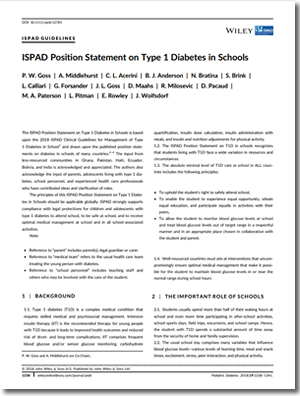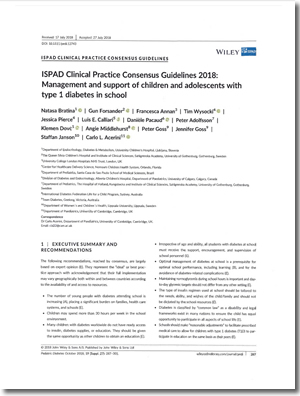Rights and Responsibilities
The World Health Organisation recognises Type 1 Diabetes (T1D) as a disability. Many countries have recognised T1D as a disability in common law. Legal frameworks exist to protect children and adolescents with T1D to ensure the student has an equal opportunity to participate in all aspects of school life. (ref ISPAD PS 5.1)
Parents and health teams respect the work demands of teachers. The contribution made by school personnel to appropriately assist the student with T1D at school should be acknowledged and appreciated by all. (ISPAD PS 6.11) Caring for a student with T1D is best achieved through a cooperative, supportive and respectful relationship between the three key stakeholders – parent (and student when they are capable of greater independence in self-care), school personnel and medical team. (ISPAD PS 4.1)
Schools in most countries are obliged by law to make “reasonable adjustments” to facilitate prescribed medical care to allow for students with T1D to participate in education on the same basis as their peers. (ref ISPAD PS 5.2)
“Reasonable adjustments” for a student with T1D includes insulin or glucagon administration where prescribed. In well- resourced countries it also includes (if prescribed and authorised by the parent in the Diabetes Management Plan (DMP) continuous glucose monitoring interpretation and intervention (which may include use of predictive arrows and alerts) and use of insulin pump settings. (ref ISPAD PS 5.4)
References
1. ![]() ISPAD Position Statement on Type 1 Diabetes in Schools380.00 KB
ISPAD Position Statement on Type 1 Diabetes in Schools380.00 KB


Last modified: Tuesday, 27 November 2018
